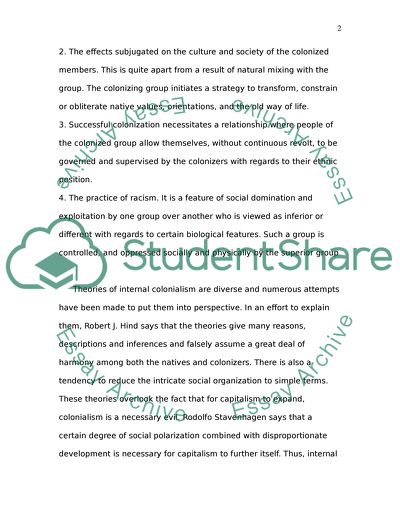Cite this document
(“What insight does the theory of internal colonialism offer into the Essay”, n.d.)
Retrieved from https://studentshare.org/miscellaneous/1537477-what-insight-does-the-theory-of-internal-colonialism-offer-into-the-processes-which-led-to-the-formation-of-the-united-kingdom
Retrieved from https://studentshare.org/miscellaneous/1537477-what-insight-does-the-theory-of-internal-colonialism-offer-into-the-processes-which-led-to-the-formation-of-the-united-kingdom
(What Insight Does the Theory of Internal Colonialism Offer into the Essay)
https://studentshare.org/miscellaneous/1537477-what-insight-does-the-theory-of-internal-colonialism-offer-into-the-processes-which-led-to-the-formation-of-the-united-kingdom.
https://studentshare.org/miscellaneous/1537477-what-insight-does-the-theory-of-internal-colonialism-offer-into-the-processes-which-led-to-the-formation-of-the-united-kingdom.
“What Insight Does the Theory of Internal Colonialism Offer into the Essay”, n.d. https://studentshare.org/miscellaneous/1537477-what-insight-does-the-theory-of-internal-colonialism-offer-into-the-processes-which-led-to-the-formation-of-the-united-kingdom.


